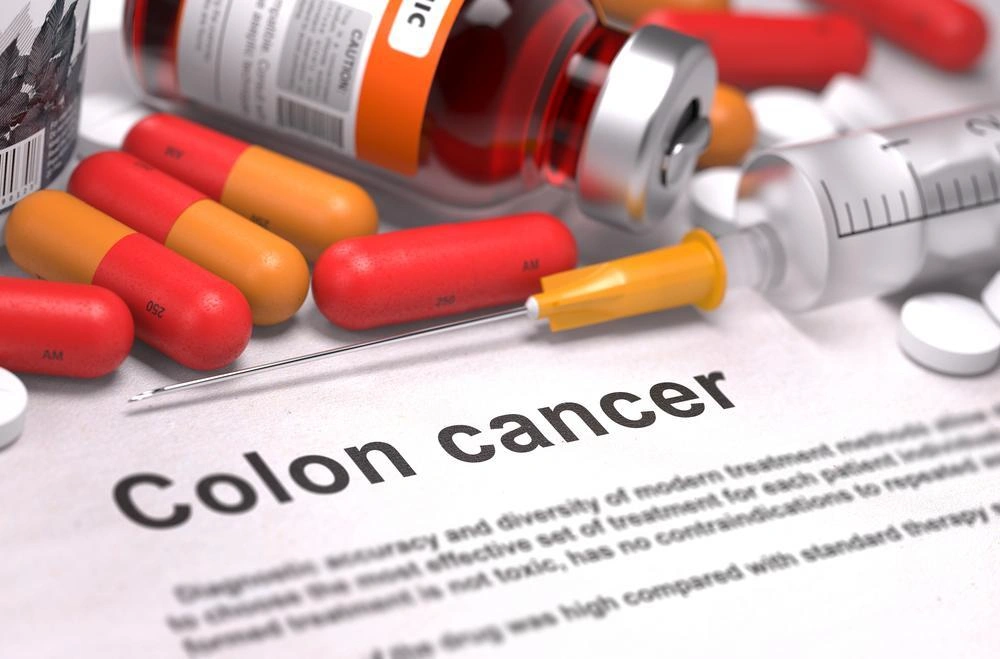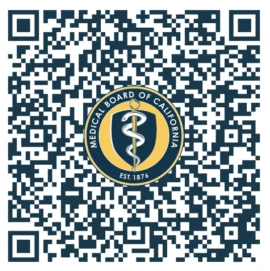Imagine your body as a finely tuned machine, requiring constant maintenance and care to keep it running smoothly. Just like a car needs regular oil changes and tune-ups to prevent breakdowns, your body also needs attention to reduce the risk of colon cancer.
You may not realize it, but there are simple steps you can take to safeguard your health and well-being. By making a few key adjustments to your lifestyle, you can significantly lower your chances of developing this serious illness.
Importance of Screening
Regularly screening for colon cancer is crucial in detecting and preventing the disease at early stages. By undergoing screening tests such as colonoscopies or stool tests, you can catch any abnormalities in your colon before they develop into cancerous growths.
These screenings can detect polyps, which are precancerous growths that can be removed during the procedure, effectively preventing the development of colon cancer.
Early detection through regular screening can significantly increase the chances of successful treatment and survival if cancer is found. Colon cancer, when detected early, is highly treatable, with a five-year survival rate of over 90%.
This emphasizes the importance of not delaying or avoiding screening tests, especially if you’re over the age of 45 or have a family history of colon cancer.
Healthy Diet Choices
Choosing a healthy diet is essential in reducing your risk for colon cancer. By making smart food choices, you can significantly impact your overall health and well-being. Here are four key dietary recommendations to help lower your risk of developing colon cancer:
- Increase Fiber Intake: Incorporate more fruits, vegetables, whole grains, and legumes into your daily meals. Fiber helps promote healthy digestion and can reduce the risk of colon cancer.
- Limit Red and Processed Meats: Cut down on red meats like beef, pork, and lamb, as well as processed meats like hot dogs and bacon. These meats have been linked to an increased risk of colon cancer.
- Choose Healthy Fats: Opt for sources of healthy fats such as avocados, nuts, seeds, and olive oil. Avoid trans fats found in many processed and fried foods.
- Stay Hydrated: Drink an adequate amount of water throughout the day to keep your digestive system functioning properly. Proper hydration can help reduce the risk of colon cancer and other health issues.
Regular Physical Activity
To further reduce your risk for colon cancer, maintaining regular physical activity is crucial for promoting overall health and well-being. Engaging in activities like brisk walking, jogging, swimming, or cycling for at least 30 minutes a day can significantly lower your chances of developing colon cancer.
Physical exercise helps in maintaining a healthy weight, reducing inflammation in the body, and improving digestion and metabolism, all of which are key factors in lowering the risk of colon cancer.
Regular physical activity also plays a vital role in reducing stress levels and boosting your immune system, further enhancing your body’s ability to fight off cancerous cells. Additionally, exercise helps to regulate hormone levels, including insulin, which can impact the growth of cancer cells in the colon.
Make it a priority to incorporate physical activity into your daily routine. Whether it’s taking the stairs instead of the elevator, going for a run in the park, or joining a fitness class, every bit of movement counts towards reducing your risk of colon cancer. Stay active, stay healthy!
Limiting Alcohol Consumption
Cutting back on alcohol intake can significantly decrease your risk of developing colon cancer. When it comes to limiting alcohol consumption, there are key actions you can take to safeguard your health:
- Moderation is Key: Consuming alcohol in moderation can help reduce the risk of colon cancer. Limiting yourself to one drink per day for women and up to two drinks for men is advisable.
- Choose Wisely: Opt for drinks with lower alcohol content and avoid excessive consumption of hard liquor. Light beer or wine can be better choices compared to high-proof spirits.
- Stay Hydrated: Alternating between alcoholic beverages and water can help maintain hydration levels and potentially reduce the negative effects of alcohol on your colon.
- Know Your Limits: Understanding your body’s tolerance for alcohol is crucial. Be mindful of how much you can safely consume without exceeding healthy limits.
Avoiding Tobacco Products
Reducing your risk for colon cancer involves steering clear of tobacco products. Tobacco use has been linked to an increased risk of developing various types of cancer, including colon cancer.
When you smoke or use tobacco products, harmful chemicals enter your body and can damage the cells in your colon, potentially leading to the development of cancerous growths. By avoiding tobacco products altogether, you can significantly lower your risk of developing colon cancer.
Even exposure to secondhand smoke can have detrimental effects on your colon health. Make sure to avoid environments where people are smoking to protect yourself from the harmful chemicals present in tobacco smoke. Additionally, if you currently use tobacco products, consider reaching out to resources that can help you quit.
Quitting smoking or using other tobacco products is one of the best things you can do to improve your overall health and reduce your risk of colon cancer. Take the necessary steps today to eliminate tobacco from your life and safeguard your colon health.
Maintaining a Healthy Weight
Maintaining a healthy weight plays a crucial role in lowering your risk for colon cancer. By keeping your weight in check, you can significantly decrease the chances of developing this type of cancer.
Here are four key points to help you understand the importance of maintaining a healthy weight in reducing your risk for colon cancer:
- Body Mass Index (BMI) Matters: Maintaining a BMI within the healthy range can lower your risk of colon cancer.
- Healthy Eating Habits: Consuming a balanced diet rich in fruits, vegetables, and whole grains can help you manage your weight effectively.
- Regular Physical Activity: Engaging in regular exercise not only helps you control your weight but also reduces the risk of colon cancer.
- Avoiding Excess Body Fat: Excess body fat, especially around the waist, can increase the likelihood of developing colon cancer. Strive to maintain a healthy body fat percentage to lower your risk.
Understanding Family History
Understanding your family history is pivotal in assessing your risk for colon cancer and taking proactive steps to protect your health. If you have close relatives who’ve had colon cancer, especially if they were diagnosed at a young age, your own risk may be higher.
Knowing your family history allows you and your healthcare provider to determine if you need to start screening for colon cancer earlier than the recommended age of 45.
Take the time to gather information about your immediate family members’ health conditions, including any history of colon cancer or other related cancers. This knowledge empowers you to make informed decisions about your own health and well-being.
Additionally, understanding your family history can prompt you to adopt a healthier lifestyle, such as maintaining a balanced diet and engaging in regular physical activity, which can help reduce your risk of developing colon cancer.
Stay proactive and informed to safeguard your health and potentially prevent colon cancer from affecting your life.
Managing Stress Levels
Assessing and addressing your stress levels is crucial in promoting overall well-being and potentially reducing your risk for colon cancer. Stress can have a significant impact on your body, including your digestive system. Here are four practical tips to help you manage your stress levels effectively:
- Regular Exercise: Engaging in physical activity releases endorphins, which are natural mood lifters and stress relievers.
- Mindfulness and Meditation: These practices can help you stay present, reduce anxiety, and improve your ability to cope with stress.
- Healthy Lifestyle Choices: Eating a balanced diet, getting enough sleep, and avoiding excessive alcohol and caffeine intake can all contribute to stress reduction.
- Seeking Support: Talking to friends, family, or a mental health professional can provide you with valuable outlets to express your feelings and receive guidance on managing stress.
Implementing these strategies can not only enhance your overall well-being but also potentially decrease your risk of developing colon cancer.
Contact Digestive Disease Consultants of Orange County for Screening
To schedule a colon cancer screening, reach out to Digestive Disease Consultants of Orange County. Screening is crucial for early detection and prevention. Contacting our experienced consultants is the first step towards taking control of your health.
Our team specializes in comprehensive gastrointestinal care, ensuring you receive the highest quality screening services tailored to your needs. By reaching out to us, you’re prioritizing your well-being and making a proactive choice in managing your health.
Our state-of-the-art facilities and advanced screening techniques guarantee accurate results and peace of mind. Don’t hesitate to schedule your screening with Digestive Disease Consultants of Orange County today.
Early detection significantly increases the chances of successful treatment and recovery. Take charge of your health and schedule your colon cancer screening now. Your future self will thank you for making this important decision.
Frequently Asked Questions
What Age Should I Start Screening for Colon Cancer?
Start screening for colon cancer at age 45. Regular screenings can help catch any issues early. Consult with your healthcare provider to determine the best screening method and frequency based on your individual risk factors.
Are There Any Alternative Screening Methods for Colon Cancer?
Yes, there are alternative screening methods for colon cancer. You can opt for a stool DNA test or a virtual colonoscopy. These tests can provide valuable information about your colon health without the need for a traditional colonoscopy.
How Often Should I Be Screened for Colon Cancer?
You should be screened for colon cancer regularly based on your risk factors. Talk to your healthcare provider about recommended screenings and how often you need them to stay on top of your health.
Can Certain Medications or Medical Conditions Increase My Risk for Colon Cancer?
Certain medications or medical conditions can increase your risk for colon cancer. Always consult with your healthcare provider to understand how your specific situation may impact your risk and develop a plan for monitoring and prevention.
Are There Any Specific Symptoms I Should Watch Out for That May Indicate Colon Cancer?
Watch for symptoms like persistent abdominal pain, unexplained weight loss, changes in bowel habits, blood in stool, fatigue, or weakness. If you experience any, consult a healthcare provider promptly for evaluation and possible screening.
Conclusion
Overall, taking steps to reduce your risk for colon cancer is crucial for your overall health and well-being.
By staying proactive with screening, making healthy lifestyle choices, and managing risk factors, you can lower your chances of developing this serious disease.
Remember, early detection is key in successfully treating colon cancer.
Take control of your health today and contact Digestive Disease Consultants of Orange County for screening and guidance on reducing your risk.



